George Allison should focus on real analysis and not childish hit jobs, argues Ian Proud, in this submission to the UK Defence Journal.
Your article of 5 May 2025 ‘The Royal Navy is still a global force, not a spent one’ attempts to discredit the article that I published in the Quincy Institute for Responsible Statecraft of 2 May, entitled ‘How Russia’s naval rearmament has gone unnoticed’.
Given the excellent analysis that the UK Defence Journal normally produces, this attempted hit job was disappointing.
This article is the opinion of the author and not that of the UK Defence Journal. If you would like to submit your own article on this topic or any other, please see our submission guidelines.Â
The article purposefully does not reference the focus of my piece in Responsible Statecraft, to highlight the excellent book, recently published, that I draw from in my article. Â The Royal and Russian Navies: cooperation, competition and confrontation jointly was written by Captain David Fields RN (Retd) and Robert Avery OBE.
This book charts the history of engagement between the Royal Navy and Russian Federation Navy over a period of twenty five years and looks, in great detail, at Russia’s rapid rearmament. That rearmament has seen Russia’s navy overtake the Royal Navy by some margin.
The UKDF article takes a pot shot at my naming of HMS Prince of Wales as ‘The’ Prince of Wales, claiming it undermines ‘the article’s authority and suggests a detachment from the subject matter being critiqued.’
That is shoddy disinformation and discredits the service of the authors of The Royal and Russian Navies who are both subject matter experts on the issue of British naval engagement with Russia. David Fields had a three-decade Royal Navy career, serving twice in the Defence Section at the British Embassy in Moscow, latterly as the UK Naval Attache. Robert Avery is a retired Principal Lecturer from the Defence Centre for Languages & Culture at the UK’s Defence Academy.
Nor are my antecedents referred to, having served in HM Diplomatic Service for 24 years until 2023, including four and a half years service in Moscow. I studied Russia for ten years and authorised around half of all UK sanctions against Russia including after war broke out. Born into a military family, I also served alongside the UK military in Helmand Province in 2010 during Operation Moshtarak.
George Allison, who penned the article, has no military association nor expertise on Russia, having studied ‘cyber security’ at Glasgow Caledonian, the UK’s 40th ranked University.
My piece in Responsible Statecraft was not an attempt to glorify Russian military industrial achievement, but to take a cold hard look at uncomfortable facts, at a time when UK politicians are focussed on performative posturing and vanity deployments, including that of CSG25.
Allison includes information in the article which is untrue. ‘Proud fails to mention that the UK’s carrier group is not operating alone.’ He clearly didn’t read the line in my article that said. ‘Supported by a frigate each from Canada, Norway, and Spain, almost half of Britain’s fighting ships embarked from Portsmouth and Devonport to much fanfare.’
In fact, it is barely clear that he read the article at all.
He takes a sideswipe at my article’s assertion that.  ‘The Royal Navy now has only one destroyer, two frigates… to defend British shores,’ claiming that this ‘is not only factually questionable — it borders on disingenuous’
Not counting coastal patrol vessels, small training boats and minehunters, the UK has only nine conventionally armed warships and submarines at sea, four of them on a publicity tour to Asia and one in Oman. Allison’s idea that we should include in the calculation HMS Daring, which has been in refit for eight years, three of the five Astute class attack submarines, that have been in refit for an average of almost two years, and other vessels undergoing refit or maintenance just to make up the numbers, is patently idiotic. It is more foolish for the fact that the UK Defence Journal has repeatedly pointed up issues around the long-term lay up of the Royal Navy’s most expensive assets.
Allison grudgingly acknowledges that I have a point on the vast expense of the MoD Equipment Plan. But he claims that I ignore what’s being funded: ‘the Type 26 Global Combat Ship, the Type 31 general-purpose frigate.. and of course, submarines.’
The Type 26, Type 31 and Dreadnought programmes are all considerably overbudget. When the MoD’s Defence Equipment plan was last published in 2023, it confirmed that, taken together, the three programmes had suffered an increase in forecasted costs of £2.5bn in the space of a single year. We have no update on current costs as the MoD has refused to publish an Equipment Plan since that time, a failing the UK Defence Journal has highlighted recently.
None of these programmes will produce durable capability before the end of this century. The earliest that the Type 26 will enter service will be 2028, with all ships due by 2035, for the type 31s it’s the ‘early thirties’ and for the Dreadnoughts it’s the ‘thirties’. By that time, Russia’s naval yards will have pumped out many more hulls.
The glacial pace of UK shipbuilding that Allison refers to will not scare the Russians.
Allison almost concludes by saying that to call the Royal Navy ‘a shell of a service while praising a Russian Navy hemmed in by geography and beset by sanctions is, frankly, a misreading of both power and purpose.’
I don’t praise the Russian Navy but rather point out that Russian shipbuilding has vastly outstripped that of the UK for well over a decade since the Ukraine crisis started. If Allison knew anything about sanctions, which he does not, he would realise that Russia has actively been seeking ways to circumvent them since 2014 while sourcing technologies from other countries, legally and illegally, and developing its domestic supply chain.
Allison assumes that nine conventionally equipped fighting vessels are all the power the Royal Navy needs for a purpose he does not specify. Not including its rapidly expanding surface fleet, Russia is thought to operate sixty three submarines, that’s seven submarines to every fighting British vessel. As the Russians say, quantity has a quality all of its own.
Unfortunately, George Allison has fallen into the trap of the UK mainstream media, of ignoring uncomfortable truths about Russia, to suit a government narrative that it is a declining power, destined for defeat in Ukraine. If he wants to be taken seriously as an analyst, he should question and challenge the Ministry of Defence more to raise their game, tackle waste, and deliver a Royal Navy this country can be proud of. That is the brand the UK Defence Journal has built its reputation on not childish and ill-informed hit jobs that discredit the good service of the authors of the excellent book that I reviewed.
Editor’s note
At the UK Defence Journal, we welcome responses, counterpoints, and open debate — including from those who strongly disagree with our reporting. The following piece was submitted by Ian Proud in response to our article “The Royal Navy is still a global force, not a spent one,†which critiqued his earlier commentary on the Russian and Royal Navies published by Responsible Statecraft. It is presented here in full in the interest of transparency and fairness.



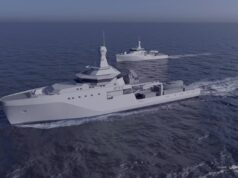
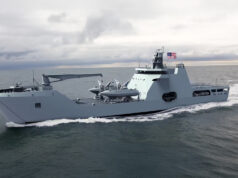

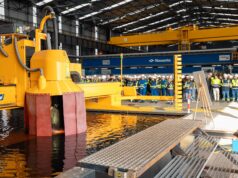
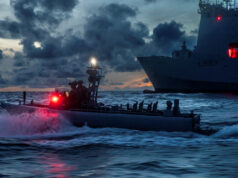

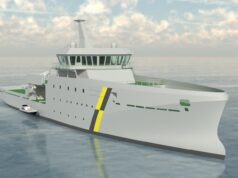

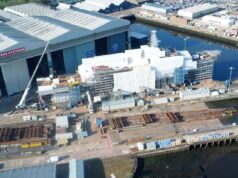

Honestly Ian, why should anyone give you the time of day when your submission refers to a rather level headed response to you as a “hit piece.” That sort of language might pass in a comments section, but in an actual article?
Maybe you have some good points in the rest of the article, but why should I give it any time when you open with such a whiny gripe?
As he said it I will repeat what I thought of this clearly rushed and ‘messy’ ‘rebuttal’ as I read it, it is so childish and churlish it’s difficult to take seriously, just bubbling in rage over any careful reasoning that might have won the actual argument. As for the T-31, T-26 and Dreadnought classes not offering ‘durable service till the end of the Century’ well if that isn’t a pathetic example of amateurish type-reading then he must have the same Ketamine supplier as Elon Musk.
It is concerning, if as these types like to boast, they have superior experience and thus ‘inherent knowledge’ than those mere mortals they are so arrogantly disparaging (playground carping or what) then god help us solving the very real issues supposedly being discussed here. Geez and these are the ones pointing out the concerns most of us actually have and would be sympathetic to in a sane World, so what the hell are the complacent Gentleman’s Club brandy drinkers ignoring any urgency like? Perhaps he can ask at the next table, I suspect they are merely different sides of the fundamentally same tossing coin in the end. The moment you start throwing insults rather than facts around you lose the argument and whatever the merits of George’s article this guy lost it in the first custard pie throwing sentence. Grow up.
Lost any appearance of good faith by putting cyber security in scare quotes.
I would suggest George called it exactly right, even in your rebuttal you are quoting facts to fit your narrative like how many large ships the Royal Navy has at sea while previously mentioning the total number of all vessels built by Russia as a comparison including small coastal craft.
And pulling out the rank of a university to somehow dismiss someone’s argument is at best childish if not a dam snobbish move.
Where did you go to university Ian and what did you study that allows you to make such authoritative statements? I can’t find anything on your Bio page to indicate what esteemed institution you read at.
I completely agree. Quoting university placement implies an unprofessional and emotive response.
Ouch, well said Jim it’s arrogance of this nature ironically that undermines all moves to produce the proficient fleet in numbers that we desire. These people are of the same ilk just pulling on different coloured football (probably Rugby in their case) shirts to fill their time with garbage commentary making a handy living and expecting the riffraff to know their place and not question their reasoning, or lazy lack of far too often, as is displayed in large dollops in this pathetic rebuttal that he didn’t even proof read. I do wonder if it would have been more insightful had he bothered to spend even a short time thinking upon what he was saying before keyboard warrioring … geez even Hegseth might have sounded less embarrassing.
Didn’t you know going to university obviously makes u superior to anyone he didn’t go (even if u studied medieval poetry ) lol
The comment “None of these programmes will produce durable capability before the end of this century†when talking about T26 and T31, all due to enter service in the next 10 years, perfectly sums up the response for me. Keep doing what you do George.
I expect he meant decade. Tempers are raised and perhaps the normal level of proofreading missed. Even so, I’d argue that the Type 26 will give durable capability long before then. Even though Glasgow is scheduled for IOC second half of 2028, if there was a war it could probably be rushed into service long before that.
The normal level of proof reading did lead him to refer to “The HMS Prince of Wales†– I think we can at least entertain the idea he’s just error prone.
I saw that – clearly he meant decade and didn’t re-read it properly.
To be fair yes the new ships won’t be in service for a while yet however, Russians commanding even new ships are not very competent at least the Royal navy is crewed by competent crew who actually train
So a snivel servant no less. Wouldn’t know a know a hard day at sea if it kicked him up the rear end.
Bet he uses pronouns as well
‘Snivel servant’ ? Not very grown up, whatever you’re opinion of his views.
Well I guess that yes you can keep to the high ground, or as he set the scene respond in like language he might understand. Personally, though others may choose otherwise I accept, if you sink to such pathetic behaviour because you can’t take criticism, you should perhaps fully expect it back in kind. I would however expect some objectivity if you are going to point out one person’s less seasoned language and attitude while ignoring the other.
Snivel servants? On this side of the Pond, often referred to as simple servants. ðŸ˜
We sometimes call them ‘snivel serpents’
Well Done, George and UKDJ, for printing Ian’s response. As much as I hate to admit, Ian does have a number of valid points; UK’s lack of speed in ship procurement and a tendency to sell off/scrap naval assets before replacements to balance the books has long been government policy. As an island nation, we will always need an amphibious capability of some description yet here we are again selling our amphibious platforms for a few million to Brazil, yet find we are debating the shape, form and cost of their replacements for the next 4+ years! Our naval assets are spread transparently thin across the sea with not enough assets to protect undersea cables and other structures in our coastal waters. Long development times in autonomous and drone programmes that seem to go nowhere. The under-armed surface fleet that is only now slowly being uprated. Over-reliance on a small number of nuclear attack submarines to the exclusion of conventional submarine technology, although we are slowly, there’s that word again, looking at autonomous AI submarines to boost numbers.
Agree, both articles raise valid points in a characterization of the same issue, in a sort of glass half-full vs. glass half-empty argument. Few realize this is now an historical argument; fundamental relief is enroute. The UK is, at long last, embarking upon a path of rearmament. HMG has announced a budget of 2.5% of GDP for defence by 2027. Virtually guaranteed that NATO will establish a higher future goal for member defence spending, perhaps as soon as the NATO Summit in June. Provided that sensible procurement policies are followed, most current issues re services will be resolved over time. Actually, a time for optimism.
Reasoned response from you and Mikeytee, it would have gone down a lot better had he not resorted to cheap insults and instead stuck to those valid points. If this however is indicative of the level of intelligence involved in the debate then it’s no wonder poor decisions, or lack of any at all take place amongst the decision makers. Judging by what Rory Stewart said that as recently as the mid teens Defence Committees were discussing if we even needed a defence manufacturing industry or a Blue Water navy I suspect the level of discussion may have sunk to a very similar level this gentleman has portrayed in droves in his rebuttal. That way nothing gets done and even good points get lost in arrogant and self serving presentation.
I don’t think the tone of this article has done you many favours cobber
Correct, But neither the tone of the author of this site in the other post.
Both gentlemen need to grow up and move on from this.
We have done James, Ian and I had a chat and we agreed on publishing this. We disagree here but that doesn’t mean we can’t be pleasant and civil in person.
Think being elitist and bringing up the ranking of his university tells us the readers a lot . Some salient and objective points on both sides though
“Russia is thought to operate sixty three submarines, that’s seven submarines to every fighting British vessel. As the Russians say, quantity has a quality all of its own.” How many of these submarines are functional and crewed? At best a third.
That’s a very good point that gets lost in translation in arguments of this nature and simply wastes time getting to the crux. It would be nice to arguments that simply don’t present Russian numbers as totals available while so sniffly even sarcasm presenting uk numbers in their lowest possible availability. You aren’t going to convince anyone at any serious level with that attitude including cynical decision makers. We know US military used to spend more time over estimating Soviet capabilities just so that they could push through finance for their own weaponry, but even there cynicism has grown as a result to the point, after many decades whereby even required investments have not been made (the boy who cries wolf) and it has become difficult to catch up with China in particular now.
We need strong, rational and truly comparable facts and arguments to be made, especially to politicians, if we are going to get remotely what we need because going back when your arguments have previously been shot down because the listeners weren’t quite as gullible as you thought, is doubly difficult. Again the embarrassing nature of this rebuttal hardly feeds the reader with confidence in those pointing out our true inadequacies, let alone the likelihood of those they are trying to convince being convinced.
I think you might have hurt his feelings George.
As so often in things, a balance is needed.
There is validity in both George and Ian’s pieces.
The RN is better than some make it out to be, and yes, it’s been cut to such an extent its now fragile.
Wah wah wah, that’s all I got from that article.
Publishing this response shows a commitment to upholding standards which I wish we saw in the rest of our media- well done George and the rest of the team.
However, reading both posts, as a lay-person, it seems that both make strong cases for their positions. Ideas such as ship availability will obviously be completely different in wartime. How quickly could those ships currently in maintenance be brought up to combat standards?
Does Ian Proud expect Britain to stand alone against the Russian navy, or would we likely expect some of, if not all, of the ~65 Submarines in service with Britain’s European allies to work with us, bringing about a roughly 1-to-1 ratio of submarine combatants, not accounting for ships in maintenance or tied up in Asia- such as on the PWLS deployment or in the Pacific Fleet? All of this provides important contextual insight to Britain’s naval capability and potential conflict with Russia.
Finally, and most importantly, ad hominem attacks, such as those based on academic institutions or qualifications should have no place in academic debate or journalism and I hope that any further discussion focus solely on the key principles of the debate rather than the authors.
This kindergarten-level squabbling needs to stop.
I found some of George’s comments in the above linked article to be petty, pedantic, dismissive, and to be honest, economical with the truth.
However, the above response has descended in several places to abusiveness.
I am sure there are merits in both sides of the discussion, but the bottom line is that everyone knows the RN has not enough personnel and ships for the task of acting as the tool of UK Foreign and Defence Policy that the Government expects it to be, and to be perfectly frank the timeline and initial armament of the new shipbuilds has always been frankly ridiculous.
Well said it’s the level it’s sunk too that is so annoying, meaning real debate is lost and as I have said above I fear it’s a similar level far too often at the levels making decisions, we don’t need Oxbridge debating society squabbles here trying to score IQ points, let alone infant school fall outs.
Well, someone’s had his jimmies rustled.
I came down here to express a chuckle at the level of elitist obsessing over backgrounds expressed in the response (as if red-cheeked in rage that such a plebe dare criticise him) despite lacking much in the way of credible rebuttals to George, but I think other commenters have beat me there.
But for my part, I’d like to draw attention at the sneering scare quotes attached to “cyber security”, as if it’s simply a Mickey Mouse subject – or perhaps as if the author is blissfully unaware that the cyber front is a lot more relevant to our threat landscape than it was, ahem, 24 years ago. In fact, given how hacks on critical infrastructure are arguably much more of a credible threat than any kinetic action against UK Inc… perhaps we should flip it around, and ask why should we care about the national security musings of those who did embassy work or lectured on Language & Culture, when they don’t have so much as a CCNP or CSSIP certification betwixt them?
Of course, to belittle their voices in such a reductive manner is both insulting and patently absurd… but therein lies the point 😉
George- I think you’ve given this guy enough rope now.
Firstly, well done to George for publishing this rebuttal. Very honest and transparent.
Let me put my cards on the table to start with. I believe that the UK armed forces are far too small, with too many capability gaps and lacking sufficient industrial infrastructure to support them in the event of another major conflict in Europe. In short, we over cashed in the peace dividend, if it ever existed. If we are not careful deterrence will fail and we will find ourselves fighting a war we are ill prepared for. That is the big risk that is coming down the road towards us. Doesn’t matter if we win it, fighting and avoidable war is the dumbest and dumb things to do. Deterrence must not be allowed to fail.
The problem with cutting your cloth to the needs of the present is that it is easier to reduce a complex capability than it is to regenerate and expand it and they don’t come much more complex than a nation’s defence forces but that is precisely the position we have got ourselves into!
The argument that appears to have kicked of here seems to me to be moot, if for no other reason that the multiple sides of the argument all imply a number of undeclared assumptions. For starters, comparing fleets as a whole ignores that fact the vessels involved undertake a myriad of roles, some of them very specialised. So simply counting the number and size of vessels and saying this or that fleet is more capable doesn’t really in help us understand the situation or how to deal with it.
During my time as a defence analyst assessing relative capabilities and effectiveness of a platform, system or system of system against possible threats was a complex business that was designed not to give definitive answers but to provide a range of possible outcomes in different scenarios, to paint a picture of the overall capability and its’ effectiveness. This was done using Measures of Effectiveness with measures of performance contributing to different measures of effectiveness depending on the mission profile. If it sounds complex it is, but it worked sufficiently well to make informed decisions (provided the grown ups were open to idea that their pet project may not be the answer they think it is).
To explain, range and endurance are Measures of Performance (MoP) and reach is the Measure of Effectiveness (MoE) driven by the MoP and the mission profile. The MoP are things that you can contract against or list in a technical specification as they are numeric in nature. MoE are harder to contract against as they have numbers in them but there will be significant explanations to clarify the number’s relevance. An example, during the late 50’s the UK was developing the V bomber force. They needed to specify a range to the engineers, so allegedly someone simply measured the distance between East Anglia and Moscow. Job done. Wrong! That ignored all the hard experience gained during the bombing campaign of WW2. Bombers flew around flack concentrations for obvious reasons and the German defenders moved their AA batteries around the country side is a deadly cat and mouse came of catch me if you can. In other words flying a straight line to the target was a no no. The V Bombers arguably couldn’t Reach their target so had to switch to using a stand off weapon. They initially failed to meet their Measure of Effectiveness as Soviet defences improved, i.e. they rather unsportingly deployed SAM’s.
So trying to argue how effective the Royal Navy is against the Russian Navy is rather more complex than quoting numbers of different types of vessel or even their size of number of VLS carried, because their effectiveness will depend on how they are handled, how the enemy will respond and will all of that expensive and complicated kit actually do what is says on the tin when it needs to?
We can all agree on a few simple points. The Royal Navy is too small, has too many capability gaps and is not fully supported by an effective and large enough industrial supply chain. The complexity comes when trying to decide what to do about it. Fleet size on the face of it is easy to deal with build more and faster. Unfortunately, build what? That can often cause argument and delay in the decision process. Then there is the need to fill in those pesky capability gaps, same problem, what to build to fill the gaps? The same as we have always done or something new?
The challenges of trying to second guess the future is relatively easy to deal with but first you have to understand a few truths. The most obvious is that no one really knows what the future holds, we can only monitor current trends, make a best guess and build in some margin. Then there is the nature of what makes the equipment capability. The bit that takes the time to build and lasts the longest is the vehicle that will carry the weapons into the battlespace. This is because the platform lasts the longest say 30 years, whereas the electronics and software that define the equipment capability have a much shorter life. In the case of computers the life of a CPU on the production line is about 3 years and a PC will probably do you for 7 years or so before you find that it can no longer keep up with the ever growing demands of the software you are trying to run. So you design the platform for growth over the its’ 30 year operational life and spiral develop the ‘payload’ carried. In other words, stop trying to get perfect at the start that is the road to failure and for heaven’s sake don’t wait to the mega widget that some bright spark promises in 5 years time, it’ll be late, won’t be what it was cracked up to be or both. Build the platforms with grown and treat the payloads as separate projects and then order as many as you can afford to drive down unit costs and give confidence to industry to invest.
At the end of the day, we are now find ourselves in an arms race with the CRINK nations and we are not winning the race so we need to change something. There are solutions to the problems we face but we need to get on and apply them. Arguing about the relative power of this force or that force distracts from the task in hand which needs to bring the vast majority of the population onside as in the worst case we are trying to deter a major war in Europe and potentially another global conflict. The stakes are that high.
Cheers CR
CR: One of your best pieces for some time.
I do miss some of the proper debates we all had a good few years ago when the comments system was working properly!
We all had something to add and very often the sensible contributors agreed…..
Maybe some cyber security is needed at UKDJ?
The fact is every year or two the RN has bought ever less to the collective NATO arsenal. In the face of Russian & Chinese aggression we’ve even lately decided to scrap or two LPDs, whuich after scrapping Ocean we have little left to conduct landings or evacuations. Apart from our two QE CVAs the RN is dangerously tiny today. We have plans & programs to return to the bare peacetime minimums we should never allowed to fall far below, but we could at any time find ourselves less capable than ever in the most dangerous of times. Failing to invest & maintain adequate forces risks the future of our servicemen, nation & everybody else’s we’re allied to.
We could find ourselves in a war with Russia with Trumps USA eiter neutral or actively hostile.
The Author of this piece goes to length to pedantically argue that the UK has only nine combat ships at sea by discounting those that are currently in refit or repair, yet applied none of the same focus is given to the Russian figure of 63 submarines, when used for making a direct comparison.
It would be foolish in the extreme to assume that Russia’s submarine fleet has snywhere near 100% at sea availability. How many of those boats are in refit or are simply languishing in dock awaiting some form of repair? Past information on the state of Russian equipment would strongly suggest that a large proportion of these are unlikely to be available or fully functional if they are, yet the suthor ignores this in favour of trying to make an extreme comparison simply to try and score points. This blatantly unbalanced use of figures undermines the credibility and reliability of his other analyses considerably.
This is funny stuff well done for printing it 🤣
It seems to me that the flaw in Ian Proud’s argument (apart from the cheap ad hominem attacks) is the assumption that we should be prepared to fight and win a war just between us and Russia. But since NATO was formed in 1949 that has never been going to happen.
Article 5 of the NATO treaty means that the UK would never have to face Russia alone. In the 1970s, for example, no one was arguing that the UK on its own had to match Russia’s 200 Northern Fleet subs, etc. NATO as a whole did that.
So what has changed? Some say Trump has put Article 5 in doubt and there is merit in that argument, but only so far as future US involvement. ENATO would still support us and is a match for Russia in its current state. Sure, we and the rest of ENATO should build for a more precarious, non-US future, and let’s demand faster and bigger builds, but what went before today was based on pre-Trump assumptions so let’s be reasonable (and polite).
The 63 subs comment is a ridiculous claim which weakens the whole argument. It’s the same kind of claim as the old 2m Soviet Spetsnaz Special Forces, it may have worked back then, satellite images and overflights show us the reality. Do we get to count Swiftsure and the others sitting near in our totals?
The Russians have been knocking out Corvettes, I’m sure if we lowered the build quality and glued some bangy things of questionable quality on the deck we could knock out a dozen Rivers B3 Corvettes a year, maybe more.
Snivelling at a cyber security degree, while the entire armed forces are screaming for specialists in the same field, really? A field that we need to take ever more seriously as our entire infrastructure and ability to wage war for more than an hour depends on it, that’s pathetic.
Indeed the Russian northern fleet is know to have at best 8 active 30-35 year old SSN/SSGNs 2-3 generations behind astute and 3 new build SSNs that were designed in the 1980s and are a generation behind asute.. so very likely a best effort from Russia would 2 relics that would be challenging to fight a Churchill class SSN and 1 new build that would be the equivalent of a Trafalgar..against probably 2-3 of arguably the best ASW SSN on the planet.